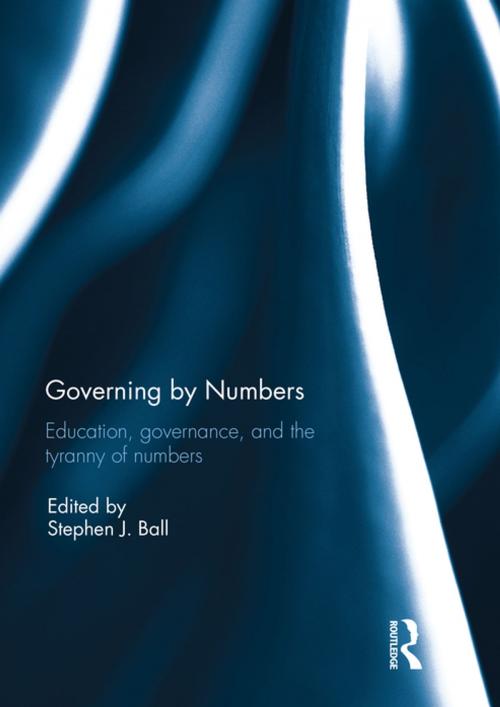Governing by Numbers
Education, governance, and the tyranny of numbers
Nonfiction, Reference & Language, Education & Teaching| Author: | ISBN: | 9781351789387 | |
| Publisher: | Taylor and Francis | Publication: | October 11, 2018 |
| Imprint: | Routledge | Language: | English |
| Author: | |
| ISBN: | 9781351789387 |
| Publisher: | Taylor and Francis |
| Publication: | October 11, 2018 |
| Imprint: | Routledge |
| Language: | English |
Social science researchers have become increasing attentive to the role of numbers in contemporary life. Issues around big data, national test results, and output and performance statistics are now routinely reported and debated in the media. Numbers are a powerful resource for governments as a means to manage and ‘improve’ their populations, and we are increasingly represented, organized and driven by an economy of numbers, which inserts itself into more and more aspects of our lives.
This book critically addresses some of the ways in which numbers are deployed in educational governance and practice, and some of the consequences of this deployment for what it means to be educated, to teach, and to learn. Recognising that numbers do not simply represent, but that they change things and have real effects, allows us to move beyond a system where difficult and important issues about what we want from education and from teachers are side-stepped in the push to ‘improve our numbers’. This collection offers a set of starting points from which we might speak back to numbers, drawing on research to explore how numbers change the way we think about ourselves and what we do. This book was originally published as a special issue of the Journal of Education Policy.
Social science researchers have become increasing attentive to the role of numbers in contemporary life. Issues around big data, national test results, and output and performance statistics are now routinely reported and debated in the media. Numbers are a powerful resource for governments as a means to manage and ‘improve’ their populations, and we are increasingly represented, organized and driven by an economy of numbers, which inserts itself into more and more aspects of our lives.
This book critically addresses some of the ways in which numbers are deployed in educational governance and practice, and some of the consequences of this deployment for what it means to be educated, to teach, and to learn. Recognising that numbers do not simply represent, but that they change things and have real effects, allows us to move beyond a system where difficult and important issues about what we want from education and from teachers are side-stepped in the push to ‘improve our numbers’. This collection offers a set of starting points from which we might speak back to numbers, drawing on research to explore how numbers change the way we think about ourselves and what we do. This book was originally published as a special issue of the Journal of Education Policy.















